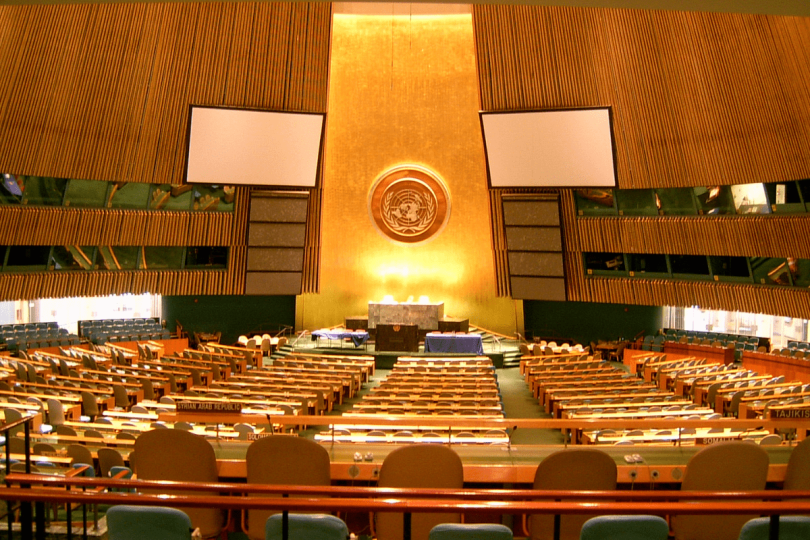[ad_1]
The role and importance of fundamental science research was felt directly and widely in the last couple of years as the novel coronavirus SARS-CoV-2 wreaked havoc across the globe.
Without the scientific knowledge and methods accumulated over decades, the extent of damage caused by the Covid-19 pandemic would have likely been far greater.
Against that backdrop, the United Nations (UN) is dedicating the upcoming year to basic sciences, with a focus on how scientific research can propel sustainable development and improve the quality of life across the world.
The UN General Assembly on 2 December by consensus a resolution proclaiming 2022 as the “International Year of Basic Sciences for Sustainable Development” (IYBSSD).
The resolution was presented by Honduras and co-sponsored by 36 countries, including Brazil, India, Israel, Japan, Russian Federation, South Africa, Thailand, and Vietnam.
IYBSSD 2022 will, therefore, be inaugurated on 1 July 2022 with an opening conference at the United Nations Educational, Scientific and Cultural Organization (UNESCO) headquarters in Paris, France. The year will conclude in June 2023.
At the time of introduction of the draft resolution, the Honduras representative said society needs to develop the necessary scientific knowledge if emergencies of the Covid-19 kind are to be tackled in the future.
On the , the UN has noted: “The COVID-19 pandemic is a reminder (so stark and brutal that we would prefer to have been spared) of our dependence on basic science to ensure balanced, sustainable, and inclusive development of the planet.”
Designating 2022 as the International Year of Basic Sciences for Sustainable Development, it adds, “will put the spotlight on the links between the basic sciences and the Sustainable Development Goals” and “will be a key moment of mobilization to convince” global leaders and the general public of the importance of fundamental science.
The need to spotlight basic sciences stems from the fact that while the fruits of technological progress are apparent, the profound results of fundamental science are harder to notice and, therefore, underappreciated.
“Every day, we use very basic sciences results, without even knowing it. Your smartphone alone contains a battery, that wouldn’t exist without a basic understanding of electrochemistry; a touchscreen and a lot of transistors that rely on our understanding of the moves of electrons in solid materials; applications that are powered by mathematical algorithms, etc. And where clean water is guaranteed at the tap, you can thank chemists and microbiologists,” the French science communicator Luc Allemand, who is also the IYBSSD general secretary, História, Ciências, Saúde–Manguinhos in September this year.
For advances in areas like medicine, agriculture, water resources, energy, and environment, basic science research is essential. These same areas cover the spectrum of the UN sustainable development goals as well.
Seventeen sustainable development goals lie at the heart of the 2030 Agenda for Sustainable Development, which was adopted by all the member states at the UN Sustainable Development Summit in September 2015.
While all the goals require scientific inputs to varying degrees, some goals, such as health and well-being, affordable and clean energy, and climate action, are directly linked to scientific advances.
So, the International Union of Pure and Applied Physics (IUPAP) and 40 other science unions and organisations led the efforts, under the auspices of UNESCO, beginning in 2017 to establish a year dedicated to basic sciences.
In 2019, a resolution for the proclamation of the year 2022 as the International Year of Basic Sciences for Sustainable Development by the UN General Assembly was adopted by the UNESCO General Conference.
On 2 December 2021, the UN General Assembly adopted the resolution to declare IYBSSD 2022.
It so happens that 2022 also marks the centenary of IYBSSD founding partners IUPAP (Physics) and the International Mathematical Union (IMU).
Currently, have expressed their support for the initiative, including 28 Nobel laureates and Fields Medalists.
The Indian supporters of IYBSSD 2022 are the Indian Academy of Sciences, Indian National Science Academy, Indian Institute of Science Education and Research (IISER), Kolkata; and the Gujarat Council on Science and Technology, Government of Gujarat.
[ad_2]
Source link








